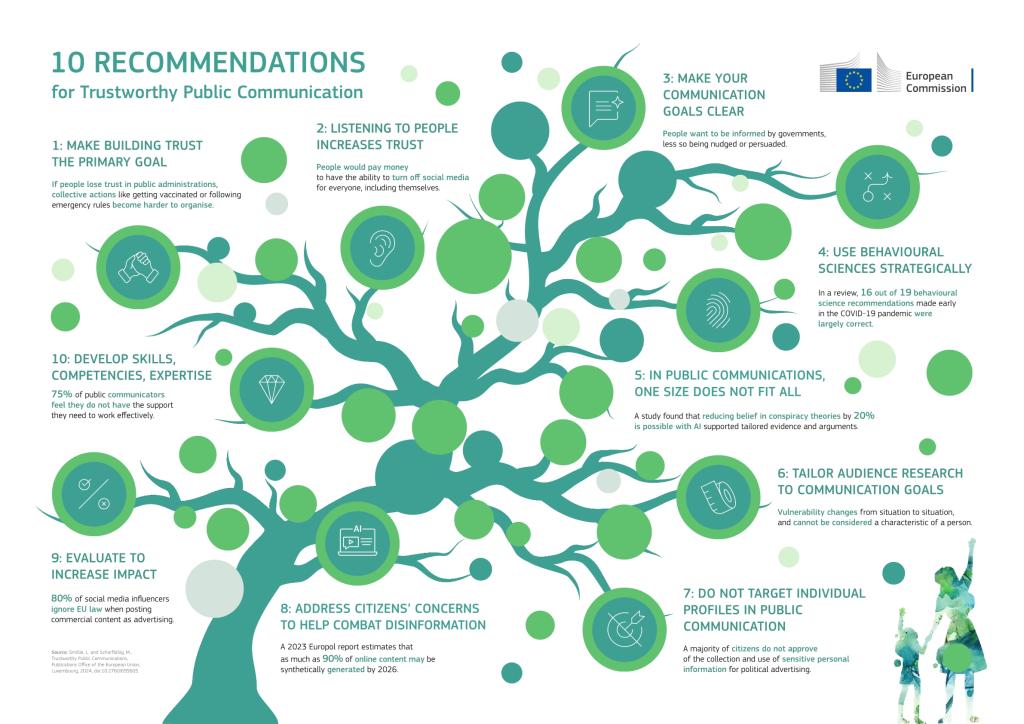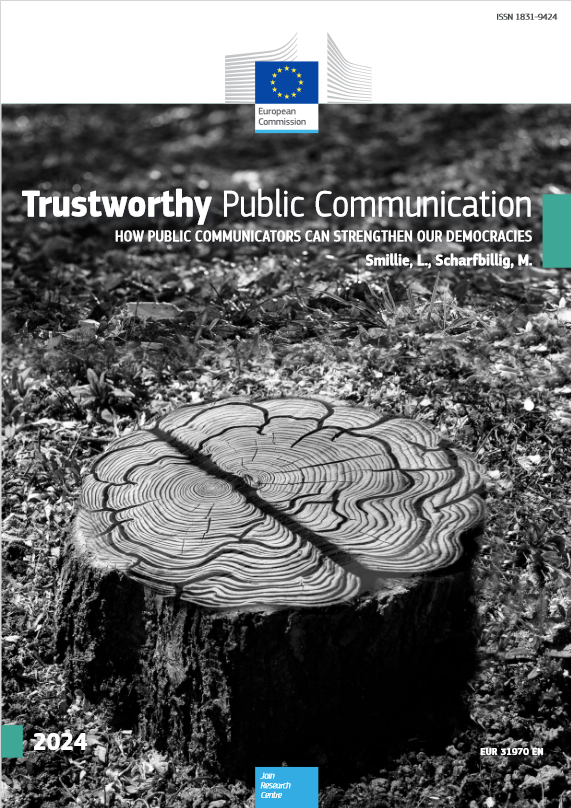Brief me
Citizens’ trust in governments and administrations around the world have been declining for years. Democracy as governance system is often justified with the idea that it can deliver better decisions and results than autocracy because of the “wisdom of the crowds”, which is known to outperform any one individual.
However, our information environment – the places where we share, listen to and debate information – has been changing dramatically, making communicating in a meaningful and ethical way extremely challenging. So what is the role of the public communicator in this new world?
Our new report provides evidence-based insights and recommendations on how public communicators can strengthen democracies by navigating (new) information ecosystems in ways that earn the trust of citizens.
The report combines state-of-the-art scientific knowledge and insights from experts, new empirical research on the moralisation of policies and values-targeted communication strategies, and input from citizens on this topic to provide practical guidance to policymakers and public administration communications professionals.
Read the Trustworthy Public Communication report
Our 10 key messages:
Recommendation 1: Building and retaining public trust in their public administration, through being trustworthy at all times, should be a public communicator’s primary goal
Recommendation 2: Public communicators should invest more in effective ways of listening to citizens to increase trust in their public administration and democracy
Recommendation 3: Public communication goals - ranging from informing to behavioural change - should be decided up front and communicated transparently
Recommendation 4: If behaviour change is the communication goal, behavioural sciences should guide the selection of the most appropriate tools
Recommendation 5: Public Communication should not be “one size fits all”, instead be formal, layered and acknowledge emotions and uncertainty
Recommendation 6: Public communicators should tailor audience research techniques to different public communication goals
Recommendation 7: Individual profiles should not be used to Public Communication; one alternative is values segmentation providing messages that resonate with all parts of society
Recommendation 8: Public communicators should acknowledge public concerns pre-emptively, before policy solutions have been developed; this includes strategies to combat mis- and disinformation.
Recommendation 9: Public communicators should invest in evaluation to increase the impact of their communications
Recommendation 10: New challenges require new skills, competences and centres of expertise to support public communication professionals.
The report also contains tips and tricks of how to put the science into practice.

Latest knowledge from this Project
About Evidence-Informed Policy Making
JRC - Joint Research Centre
More information
| Originally Published | Last Updated | 05 Jul 2021 | 17 Sep 2024 |
| Knowledge service | Metadata | Evidence-Informed Policy Making | Enlightenment 2.0 |
| Related organisation(s) | JRC - Joint Research Centre |
| Digital Europa Thesaurus (DET) | Knowledge4policy |
Recommended reading
International Call for Experts on ‘Challenges and opportunities for the Future of Democracy’ project
Competence frameworks for policymakers and researchers
Learning & Development
Share this page

